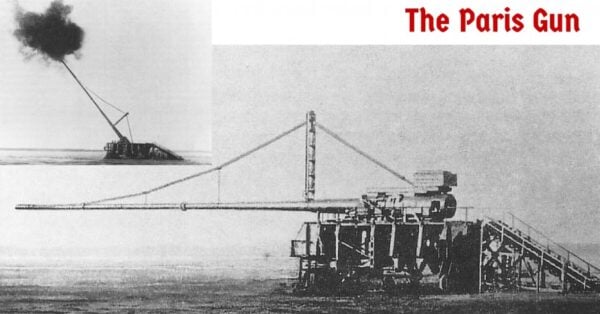
The Paris Gun was used by Germany to shell Paris from a great distance during the First World War. It was the largest cannon in the world at the time.
Pressure has been put on Ukraine during the summer counter-offensive to make notable, media worthy gains in taking back lost territories from Russia. The amount of equipment being supplied by their allies and the motivation for more advanced systems depends upon the level of support the public has for Ukraine’s offensive in those nations supporting Ukraine financially and militarily. Even if the public in allied countries see the good in helping Ukraine, the amount of pressure on locals financially, via inflationary pressures, and their level of safety in their own community, will be juxtaposed against support for the war. For those policy makers wanting to support Ukraine and its people, it should be acknowledged that pressure on locals in their own countries at least need to be vocalized as being of equal priority to supporting Ukraine in the conflict. Ignoring this goal will do more harm to Ukraine in the medium term than denying them Leopard 2A6s and F-16s.
A standstill in the conflict and entrenchment can be harmful for the war effort if it extends the conflict past the support it has outside of Ukraine. A First World War scenario might be forming in some parts of the front where artillery exchanges and barrages make up much of the tactical movement on the field. The logistical weight of the conflict has already depleted the stock of arms on both sides, and with mothballed equipment from the United States coming though to the front, and Russia seeking compatible weapons from a Soviet design heritage, a longer term conflict might be the end result. Actions by Russia that might give them some realistic advantages comes from seeking weapons from North Korea for its forces in Ukraine. Despite some equipment being out of date, a 100mm cannon and armour that can mount ERA protection is better than not having it at all, and such equipment is still harmful to enemy infantry. Gaining access to 152mm artillery shells can create chaos for the attacking side, a role Ukraine has taken on this year with expected difficulty. Even a 1960s artillery shell can cause a great deal of damage to modern equipment, and many modern barrels have already gone past their effective time of use. With modern targeting systems, old Soviet equipment can be as effective as some modern systems.
Acts such as pushing for a new global currency via the BRICS+ nations will be less of a threat to the US Dollar and the political weight it gives to the United States. While Russia is already linking its economy Eastwards to China and India, the reality is that the diverse needs of the initial four BRIC nations was unsuccessful in dominating the world economy as a group. Expanding the BRICS+ only exacerbates the problem by adding other countries to the group, with more diverse interests, varied allegiances and a few in open conflict with each other. There are no conditions between those nations that would allow them to operate and share a common currency at this point.
A standstill might be exactly what Russia is seeking as a long term strategy, as they know that local citizens in countries supporting Ukraine are paying for much of the aid without payment in return, have limited patience for added stresses in their own lives, and have their own political divisions that work in Russia’s favour. Countries outside of Central Europe may not feel an immediate threat from the war, but will respond if their fuel, heat and employment are effected by the lack of energy in their community. Some of Ukraine’s allies who can help resist breaking their own environmental policies to aid Ukraine, and many countries have local crime and drug problems that affect citizens daily while the price of basic goods increase. For this reason, Russia has withdrawn from the Grain Deal and has attacked some of Ukraine’s grain supplies in Odesa, a port that ships essential food to much of the world. If Ukraine is to be helped, local Governments in those nations providing aid can no longer ignore local problems, as citizens have a limited amount of patience, health, and money to support themselves and an extended war policy from home.